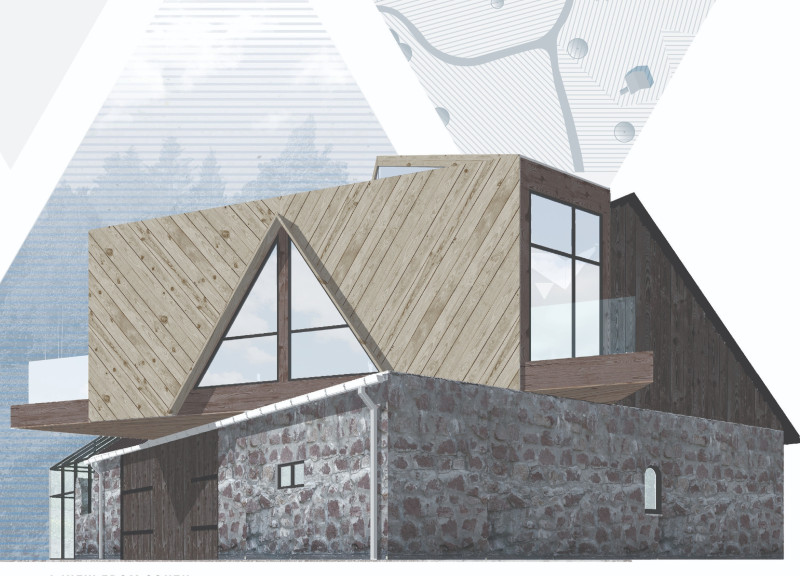5 key facts about this project
At its core, the Tea Makers Guest House represents a thoughtful articulation of place. It evokes a connection between visitors and the local landscape, offering vistas that encourage contemplation and engagement with nature. The design is structured around the phases of tea-making—picking, dehydrating, and packaging—creating a narrative journey that visitors can follow. This narrative is manifested spatially, guiding guests through various distinct areas of the building, each serving a specific purpose while contributing to the overall experience.
Functionally, the Tea Makers Guest House is designed to accommodate multiple uses. It includes private guest rooms, communal dining areas, and dedicated spaces for tea production and workshops. This diversity in program allows the building to cater to a wide range of visitors, from individual travelers to groups interested in learning about the tea-making process. Each space within the guest house is carefully considered to promote interaction, learning, and relaxation.
Unique design approaches are evident throughout the architecture, particularly in how the project engages with its surroundings. The incorporation of recycled local wood and stone not only underscores the commitment to sustainability but also evokes a sense of place, grounding the architecture in its historical context. The existing stone barn has been ingeniously integrated into the new design, preserving its heritage while introducing modern elements. Large glass panels enhance the guest house's connection to the landscape, flooding interiors with natural light and framing views that invite guests to appreciate the beauty of the environment.
The careful selection of materials is critical to the project’s impact. Recycled local wood planks provide warmth and texture, while stone elements convey durability and historical continuity. Steel is utilized for structural support, introducing a contemporary aesthetic without overwhelming the sensory experience of the surroundings. Skylights have been incorporated into the design, ensuring ample daylight within the guest house, contributing to an inviting atmosphere.
The architecture of the Tea Makers Guest House is designed to dissolve the boundaries between inside and outside, promoting an experience that encourages exploration of both the built and natural environments. By creating spaces that invite gatherings and learning, the project fosters a sense of community, encouraging interactions not only among guests but also with local residents. The design acknowledges the dynamic relationship between nature, culture, and architecture, capturing the essence of each component.
In summary, the Tea Makers Guest House is a significant architectural endeavor that illustrates the possibilities of integrating functionality with cultural storytelling. Its design captures essential elements of the tea-making process while remaining firmly rooted in the local context. Visitors are invited to engage with and appreciate the intricate relationship between what they consume and the environment surrounding them. For those interested in exploring this project further, the detailed architectural plans, sections, and designs can provide deeper insights into the thoughtful ideas and strategies employed throughout the design process.


























